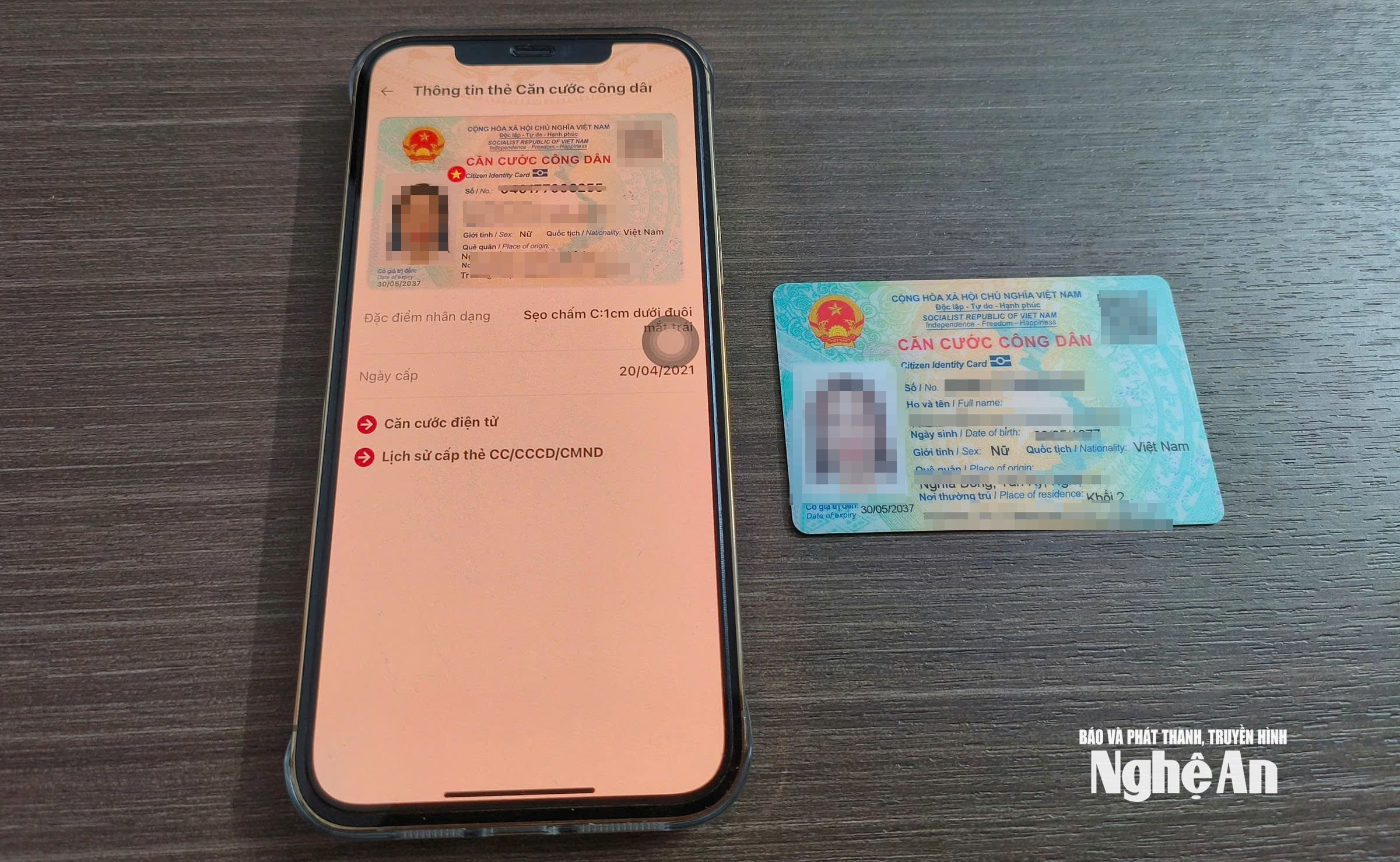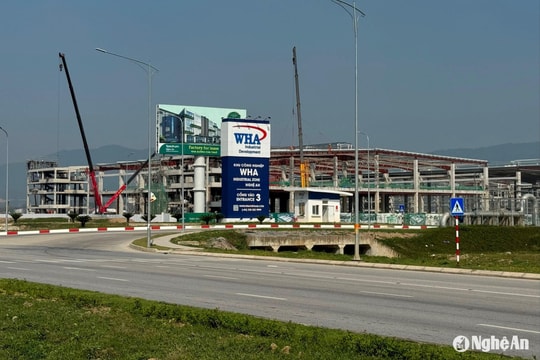New policy takes effect from November 2025
From November 2025, a series of new regulations will come into effect, directly affecting the fields of finance, insurance, administration, environment and electronic payment. Below are the notable points that people, businesses and management agencies need to pay attention to.
1. Tighten management of electronic money transfers
From November 1, 2025, Circular 27/2025/TT-NHNN of the State Bank officially takes effect, requiring reporting of domestic electronic money transfer transactions of VND 500 million or more, and international transactions of USD 1,000 or equivalent.

Specifically, Article 9 of the Circular stipulates the regime for reporting electronic money transfer transactions to the Anti-Money Laundering Department using electronic data, including:
- Domestic electronic money transfer transactions: Transactions with a value of 500 million VND or more or in foreign currency of equivalent value where all financial institutions participating in electronic money transfer transactions are in Vietnam.
- International electronic money transfer transactions: Electronic money transfer transactions in which at least one participating financial institution is located outside of Vietnam and conducted in countries and territories outside of Vietnam with a value of 1,000 USD or more or equivalent in other foreign currencies.
However, if the reporting entity is an intermediary financial institution in an electronic money transfer transaction, it is not required to make the above report.
The report contents include: Information on the initiating and beneficiary financial institutions; Information on individual customers or organizations participating in electronic money transfers; information on transactions; other information as required by the Anti-Money Laundering Department from time to time...
The goal is to strengthen supervision, prevent money laundering and ensure the safety of the financial system.
2. 4 cases are not considered as evasion of compulsory social insurance payment
Regulations on late payment, evasion of payment of compulsory social insurance, unemployment insurance; complaints and denunciations about social insurance issued by the Government in Decree 274/2025/ND-CP take effect from November 30, 2025.
Specifically, cases of evasion of compulsory social insurance payment stated in Article 4 of this Decree include:
.jpg)
Storms, floods, inundations, earthquakes, major fires, prolonged droughts and other natural disasters directly and seriously affect production and business activities.
A dangerous epidemic declared by a competent state agency, seriously affecting the production and business activities and financial capacity of agencies, organizations and employers.
A state of emergency suddenly and unexpectedly affects the operations of agencies, organizations and employers when the State declares a state of emergency.
Other force majeure events as prescribed by civil law and accompanying documents must be submitted before the 25th of the month with a written notice from the social insurance agency for consideration of exemption from handling violations.
3. Update the Vietnamese economic sector system
Decision 36/2025/QD-TTg, effective from November 15, 2025, promulgates the new Vietnamese Economic Sector System consisting of 5 levels, with a total of 743 level 5 sectors. This update helps to unify the classification of economic activities, increase the ability to compare data with international standards and serve statistics and policy making.
Accordingly, the Vietnamese Economic Sector System ensures full reflection of economic activities taking place within the territory of Vietnam and ensures international comparison and includes: List of Vietnamese economic sectors (Appendix I); Content of Vietnamese economic sectors (Appendix II).
In which, the basic structure and coding method in the Vietnam Economic Sector System includes 05 levels with sectors defined as follows:
- Level 1 industry: Includes 22 industries, alphabetically from A - V;
- Level 2 industry: Includes 87 industries, formed according to each corresponding level 1 industry and each industry is coded with two digits from 01 - 99;
- Level 3 industry: Includes 259 industries, formed according to each corresponding level 2 industry and each industry is coded with three digits from 011 - 990;
- Level 4 industry: Includes 495 industries formed according to each corresponding level 3 industry and each industry is coded with four digits from 0111 - 9900;
- Level 5 industry: Includes 743 industries formed according to each corresponding level 4 industry and each industry is coded with four digits from 01110 - 99000.

4. New contract form for civil servants and administrative units
Circular 16/2025/TT-BNV (effective November 16, 2025) of the Ministry of Home Affairs stipulates the model service contract with individuals, legal entities and labor contracts for performing the duties of civil servants.
Specifically, the contract form issued with Circular 16/2025/TT-BNV includes:
- Service contract with individuals: Sample service contract to perform duties of civil servants (signed with individuals); Sample liquidation of service contract to perform duties of civil servants (signed with individuals)
- Labor contract with civil servants: Sample labor contract to perform duties of civil servants; Sample termination of labor contract to perform duties of civil servants
- Service contract with legal entities: Sample Service contract to perform duties of civil servants (signed with legal entities - organizations, enterprises, agencies); Sample Liquidation of Service contract to perform duties of civil servants (signed with legal entities).
Agencies and units need to review and adjust forms according to new regulations to ensure legality in the process of signing and liquidating contracts.
5. Supplementing regulations on documents when making non-cash payments
Circular 30/2025/TT-NHNN (effective November 18, 2025) requires users to present valid identification documents and expiration dates when making non-cash transactions during the payment service use.
Accordingly, the identification documents used in this Circular for non-cash payments have changed compared to Clause 10, Article 3 of Circular 15/2024/TT-NHNN, including:
- Vietnamese citizens: Citizen identification card, ID card or electronic ID card (Old regulation: Removed ID card, ID certificate).
- Vietnamese people of undetermined nationality: Certificate of Vietnamese origin issued by a competent authority (Old regulation: Supplementing Certificate of Vietnamese origin).
- Foreigners residing in Vietnam: Passport or identity verification documents issued by competent foreign authorities, or documents according to entry visa, visa replacement documents, documents proving visa exemption, or electronic identity (via level 02 electronic identification account, if any).
This regulation helps improve safety and identity authentication in transactions.

6. Issuing three new environmental technical regulations
The Ministry of Agriculture and Environment issued Circular 01/2025/TT-BNNMT (effective November 14, 2025), including three new standards: QCVN 26:2025 on noise, QCVN 27:2025 on vibration, and QCVN 43:2025 on sediment quality.
If the facility or investment project continues to apply QCVN 26:2010/BTNMT, QCVN 27:2010/BTNMT... until December 31, 2026, it will be subject to one of the following cases: The facility has come into operation; The investment project has a decision approving the results of the environmental impact assessment report appraisal/has had its complete and valid dossier received by a competent state agency.
In these two cases, it is requested to appraise the environmental impact assessment report, issue an environmental license or register the environment before November 14, 2025.
From November 14, 2025, investment projects must apply the provisions of QCVN 26:2025/BNNMT and QCVN 27:2025/BNNMT.
Projects approved before November 14, 2025, can continue to apply the old standards until the end of 2026. This is an adjustment step to improve environmental protection standards in accordance with reality.
In general, November 2025 marks a strong movement in policy management, with many documents coming into practice, tightening management and increasing transparency. Organizations, businesses and people need to closely monitor to promptly adapt to new regulations.

.jpg)
.jpg)


